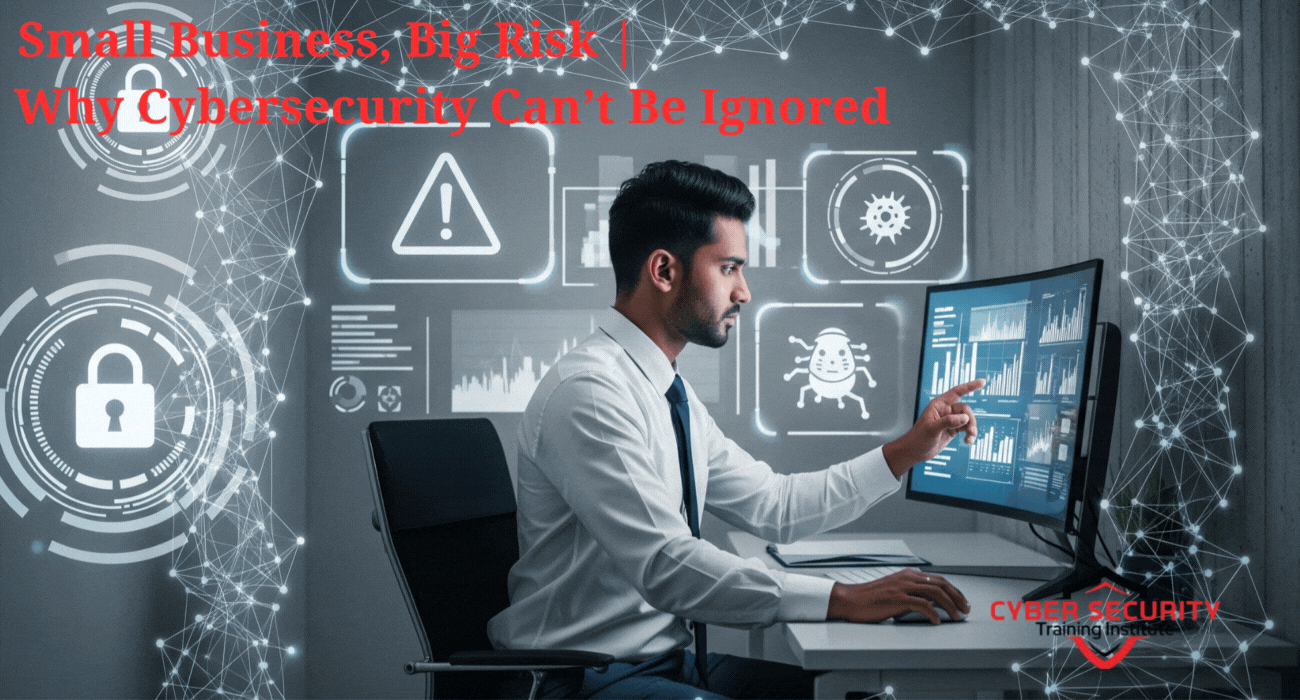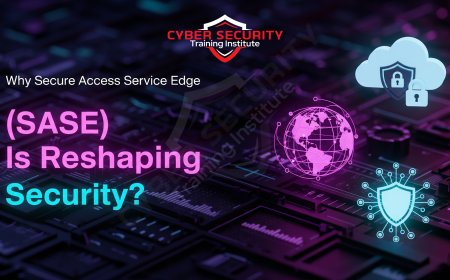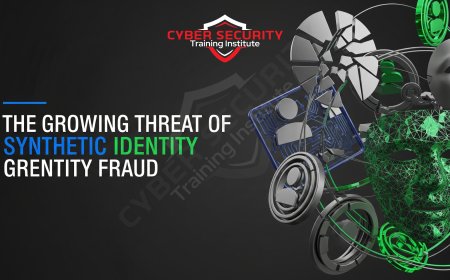Cybersecurity for Small Businesses | Why It Matters
Running a small business is no small feat. You’re juggling finances, customer service, and growth plans, all while keeping the lights on. But there’s one area that’s often overlooked: cybersecurity. In today’s digital world, where data breaches and cyberattacks are headline news, protecting your business from online threats is critical. Small businesses, despite their size, are prime targets for cybercriminals. Why? Because they often lack the robust defenses of larger companies, making them an easy mark. This blog post dives into why cybersecurity matters for small businesses, offering practical insights and actionable steps to keep your business safe. Whether you’re a café owner with an online ordering system or a freelance consultant storing client data, this guide is for you.

Table of Contents
- Why Cybersecurity Matters for Small Businesses
- Common Cybersecurity Threats Small Businesses Face
- The Impact of Cyberattacks on Small Businesses
- Essential Cybersecurity Practices
- Affordable Cybersecurity Tools and Solutions
- The Role of Employee Training
- Compliance and Legal Considerations
- Conclusion
- Frequently Asked Questions
Why Cybersecurity Matters for Small Businesses
Small businesses often assume they’re too small to be targeted by cybercriminals. Unfortunately, this isn’t true. According to a 2023 report by Verizon, 43% of cyberattacks target small businesses. Hackers know smaller companies may not have dedicated IT teams or advanced security systems, making them vulnerable. Cybersecurity isn’t just about protecting your data—it’s about safeguarding your reputation, finances, and customer trust. A single breach can lead to lost revenue, legal issues, and even business closure. For example, a local bakery with an e-commerce site could lose customer trust if credit card details are stolen. Investing in cybersecurity is an investment in your business’s future.
Common Cybersecurity Threats Small Businesses Face
Understanding the threats is the first step to protecting your business. Here are some common cyberattacks small businesses encounter:
- Phishing Attacks: Emails or messages that trick employees into sharing sensitive information, like login credentials.
- Malware: Malicious software, such as viruses or ransomware, that can lock you out of your systems or steal data.
- Weak Passwords: Simple or reused passwords that hackers can easily guess or crack.
- Unsecured Wi-Fi: Public or unprotected Wi-Fi networks that allow hackers to intercept data.
- Social Engineering: Tactics where attackers manipulate employees into revealing confidential information.
Each of these threats exploits vulnerabilities, often human error or outdated systems. Awareness is key to prevention.
The Impact of Cyberattacks on Small Businesses
A cyberattack can have devastating consequences. Below is a table summarizing the potential impacts:
| Impact | Description | Example |
|---|---|---|
| Financial Loss | Direct costs from stolen funds, ransom payments, or recovery efforts. | A ransomware attack locks a retailer’s system, demanding $10,000 to unlock it. |
| Reputation Damage | Customers lose trust, leading to reduced sales. | A data breach exposes client emails, causing customers to shop elsewhere. |
| Operational Disruption | Downtime from recovering systems or data. | A virus shuts down a small firm’s booking system for days. |
| Legal Consequences | Fines or lawsuits for failing to protect customer data. | A business faces penalties for violating data protection laws. |
These impacts can be catastrophic, especially for businesses with limited resources. Recovery costs can average $200,000 for small businesses, pushing many toward closure.
Essential Cybersecurity Practices
Protecting your business doesn’t require a big budget. Here are practical steps to strengthen your cybersecurity:
- Use Strong Passwords: Encourage complex passwords (at least 12 characters, mixing letters, numbers, and symbols) and use a password manager.
- Enable Two-Factor Authentication (2FA): Add an extra layer of security by requiring a second verification step, like a code sent to a phone.
- Update Software Regularly: Keep all software, including operating systems and apps, up to date to patch security holes.
- Secure Wi-Fi Networks: Use strong encryption (WPA3) and hide your network’s name (SSID) to prevent unauthorized access.
- Backup Data: Regularly back up critical data to an external drive or cloud service to ensure recovery after an attack.
- Install Antivirus Software: Use reputable antivirus programs to detect and remove malware.
Implementing these practices creates a solid foundation for your business’s cybersecurity.
Affordable Cybersecurity Tools and Solutions
Small businesses can access affordable tools to enhance security without breaking the bank. Here are some options:
- Antivirus Software: Tools like Bitdefender or Norton offer small business plans starting at $50/year.
- Password Managers: LastPass or 1Password help manage secure passwords for as low as $3/month per user.
- Firewalls: Basic firewalls, like those built into routers or software like pfSense, protect your network.
- Cloud Backup Services: Solutions like Backblaze or Google Drive offer secure backups starting at $5/month.
- VPNs: Virtual Private Networks like NordVPN protect data on public Wi-Fi for around $4/month.
These tools are user-friendly and designed for businesses with limited technical expertise.
The Role of Employee Training
Employees are often the weakest link in cybersecurity. A single click on a phishing email can compromise your entire system. Training your team is crucial. Here’s how to do it:
- Conduct Regular Training: Hold quarterly sessions to teach employees about phishing, password security, and safe internet use.
- Simulate Phishing Attacks: Use tools like KnowBe4 to send fake phishing emails and train employees to spot them.
- Create a Security Policy: Outline rules for handling sensitive data, using company devices, and reporting suspicious activity.
- Encourage Reporting: Foster a culture where employees feel safe reporting mistakes or potential threats.
Well-trained employees act as your first line of defense against cyberattacks.
Compliance and Legal Considerations
Depending on your industry or location, you may need to comply with data protection laws, such as GDPR (Europe) or CCPA (California). Non-compliance can lead to hefty fines. Key steps include:
- Understand Regulations: Research laws that apply to your business, especially if you handle customer data.
- Secure Customer Data: Use encryption and secure storage to protect personal information.
- Document Policies: Maintain clear records of your cybersecurity practices to demonstrate compliance.
- Consult Experts: If unsure, hire a consultant to ensure your business meets legal requirements.
Compliance not only avoids fines but also builds customer trust.
Conclusion
Cybersecurity is no longer optional for small businesses—it’s a necessity. From phishing attacks to ransomware, the threats are real and can have devastating consequences. By understanding the risks, implementing basic security practices, using affordable tools, training employees, and ensuring compliance, you can protect your business without overwhelming your budget. Cybersecurity is an investment in your business’s longevity, safeguarding your finances, reputation, and customer trust. Start small, stay consistent, and make security a priority. Your business—and your peace of mind—will thank you.
Frequently Asked Questions
What is cybersecurity?
Cybersecurity involves protecting your digital systems, data, and networks from unauthorized access or attacks.
Why are small businesses targeted by cybercriminals?
Small businesses often have weaker security measures, making them easier targets for hackers seeking data or money.
How common are cyberattacks on small businesses?
Very common—43% of cyberattacks target small businesses, according to a 2023 Verizon report.
What is a phishing attack?
A phishing attack is when hackers send fake emails or messages to trick you into sharing sensitive information.
What is ransomware?
Ransomware is malware that locks your systems or data, demanding payment to restore access.
How can I create strong passwords?
Use at least 12 characters, mix letters, numbers, and symbols, and avoid reusing passwords across accounts.
What is two-factor authentication (2FA)?
2FA adds a second verification step, like a code sent to your phone, to make logins more secure.
Do I need antivirus software?
Yes, antivirus software detects and removes malware, protecting your systems from threats.
How often should I update my software?
Check for updates monthly or enable automatic updates to patch security vulnerabilities.
What is a VPN, and do I need one?
A VPN encrypts your internet connection, protecting data on public Wi-Fi. It’s useful for remote workers.
How can I secure my Wi-Fi network?
Use strong encryption (WPA3), set a unique password, and hide your network’s name (SSID).
Why should I back up my data?
Backups ensure you can recover data after a cyberattack, minimizing downtime and loss.
How often should I back up my data?
Back up critical data weekly or after major changes, storing copies securely offline or in the cloud.
What is social engineering?
Social engineering is when hackers manipulate people into revealing confidential information or granting access.
How can I train my employees on cybersecurity?
Hold regular training, simulate phishing attacks, and create a clear security policy.
What are the costs of a data breach?
Costs include financial losses, recovery expenses, and reputation damage, averaging $200,000 for small businesses.
What laws apply to small business cybersecurity?
Laws like GDPR or CCPA may apply, depending on your location and customer base.
Do I need a cybersecurity expert?
Not always, but consultants can help with compliance or complex setups if you lack expertise.
Can free tools provide enough security?
Free tools offer basic protection, but paid solutions often provide better features for businesses.
How do I start improving my cybersecurity?
Start with strong passwords, 2FA, regular updates, and employee training, then add tools as needed.
What's Your Reaction?
 Like
0
Like
0
 Dislike
0
Dislike
0
 Love
0
Love
0
 Funny
0
Funny
0
 Angry
0
Angry
0
 Sad
0
Sad
0
 Wow
0
Wow
0
















